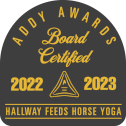Nutrition and Your Horse’s Health
Horse Health: Nutrition Basics
Many factors—including nutrition—play a role in your horse’s overall health. As a company that has dedicated itself to equine nutrition, we’d like to share some information on how the proper nutrition program can help your horse stay happy and healthy.
Tying up: Try a Low-Starch Horse Feed
High levels of starch have been shown to contribute to tying up, particularly for horses who are already suffering from polysaccharide storage myopathy (PSSM) and recurrent exertional rhabdomyolysis (RER).
Other nutrition-based risk factors for tying up include a diet without proper amounts of vitamin E and the loss of electrolytes (like when a horse sweats too much after a workout in the heat of summer).
Fortunately, we have an ideal high-quality, low-starch horse feed that may be right for your horse. Fiberenergy is a grain-free, low-starch horse feed, fortified with Stamm 30 for the proper balance of vitamins and minerals, utilizes chaff (chopped alfalfa and timothy hay) and beet pulp as soluble fiber sources and oil as another energy source and to keep the feed moving slowly through the digestive tract.
In addition, if your horse will be in hard work, you may want to consider a supplement like HydraBoost to replace the electrolytes lost through sweat.
Insulin Resistance: Decrease Sugar Intake
Of course, you’ll want to avoid feeds with a higher sugar content (for example, feeds made with a large volume of molasses). However, a low-sugar horse feed is just the beginning. You’ll also want to look at your horse’s forage source. Hay will generally have a lower sugar content than fresh pasture; you can have your hay analyzed to see how much sugar it contains. Aim for less than 8% water-soluble carbohydrates, AKA sugars. You may also want to soak hay to decrease its sugar content.
Depending on your horse’s overall health, condition, and exercise regimen, you could feed one of our lower-starch feeds. You may also consider a ration balancer, like Stamm 30, which provides all the necessary proteins, vitamins, and minerals your horse needs, without adding sugar to his diet.
Equine Gastric Ulcer Syndrome: Offer Free-choice Forage
Horses have surprisingly sensitive digestive systems; even just a few hours of fasting can lead to ulcers. Offering free-choice forage can decrease the likelihood that the stomach will be empty (and, therefore, prone to ulcers). If your horse tends to “overindulge” when faced with an all-you-can-eat pasture, try an anti-grazing muzzle to slow his eating.
Equine Cushing’s Disease: Decrease Sugars
If your horse suffers from this tumor-induced illness, ensure his forage intake has low sugar content. Similar to a horse with insulin resistance, we recommend you have your hay analyzed for sugar, and that you soak the hay to decrease sugar content. If your horse needs a feed to increase or maintain condition, look for a low-sugar horse feed that gets its calories from vegetable oils or other fat sources rather than sugars. One of our recommendations is Equibility, made with soluble fibers and vegetable oil.
This disorder is more prevalent in senior horses; because many senior horse feeds are formulated with molasses to increase palatability, it’s important to check the nutrition label. A low-sugar horse feed like Distinguished, which is made with soluble fibers and oils, is preferred over a traditional sweet feed.
Colic: Make Dietary Changes Gradually
Due to the sensitive nature of a horse’s digestive system, any change to their diet should be made gradually. This includes seasonal forage changes (e.g., transitioning from hay to pasture or vice versa) as well as changes to their feed.
Weak Hooves: Try a Biotin Supplement
For horses with weakened or cracked hooves, research has shown that 20 mg of biotin, fed daily, can help. However, the results will not be a “quick fix”; you should plan to continue feeding a daily scoop of a biotin supplement like HoofStim for at least eight months to see visible improvements.
Hallway Feeds is Here to Help
Of course, you should always follow your vet’s recommendations on what’s right for your horse. However, if you have general questions on how nutrition can help support your horse’s health, or which feed might best suit his needs, give us a call! We’re always happy to discuss which of our feeds can ensure your horse gets the high-quality nutrition he needs.









